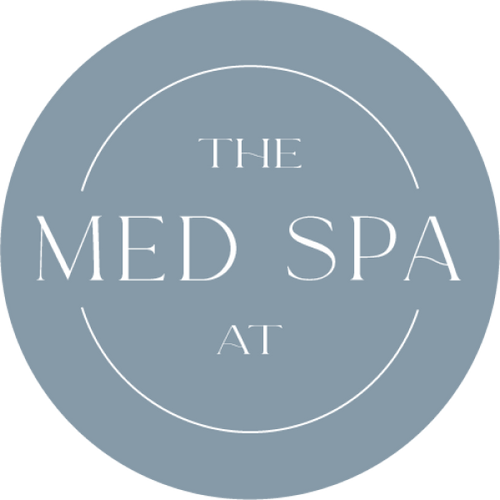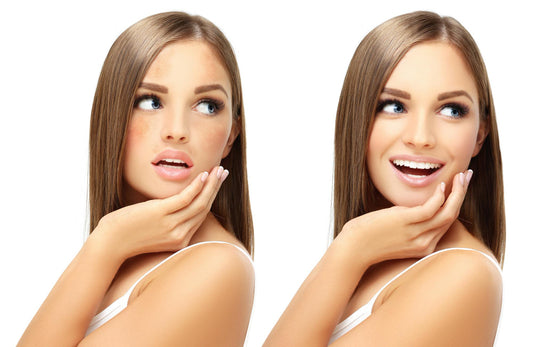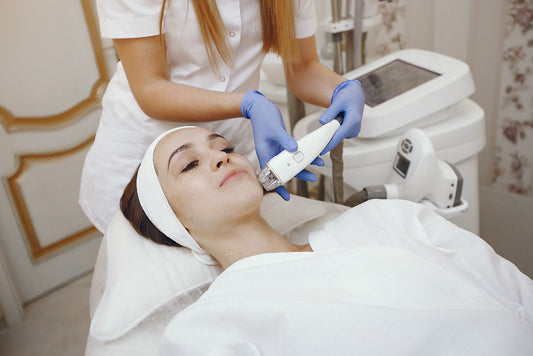Wrinkles are an inevitable part of the aging process, and while some embrace them as a sign of wisdom and experience, others may seek ways to reduce their appearance. One popular solution that has gained significant attention is Botox.
But does Botox truly get rid of wrinkles?
Yes, it does! Botox is used to treat dynamic wrinkles. Botox is a neuromodulator that is made of botulinum toxinA. This neuromodulator works by blocking nerve signals to muscles, allowing muscles to relax and wrinkles can soften.
In this article, we will walk you through the science behind Botox and explore its effectiveness in addressing different types of wrinkles, including forehead, deep, and static.
So, before you consider using Botox, let's separate fact from fiction.
Botox: What the Hype is All About?

Before we delve into how the popular Botox treatment works on wrinkles, let's briefly understand what Botox is. Botox is a famous brand name for a neurotoxin known as botulinum toxin, produced by the bacterium Clostridium botulinum.
Does Botox Help Forehead Wrinkles?
First things first!
The forehead is one of the most common areas where people seek Botox treatment. Forehead wrinkles, also known as dynamic wrinkles, occur due to repetitive muscle movement, including frowning or raising eyebrows.
Botox functions by inhibiting the release of acetylcholine, a neurotransmitter that signals muscles to contract. Injecting Botox into the forehead muscles relaxes them, resulting in a smoother and more youthful appearance.
You might also like: Juvéderm Vs. Botox: Which Treatment is Right for You?
Botox for Forehead Wrinkles —What to Expect?
If you are considering Botox for forehead wrinkles, knowing what to expect from the procedure is important. The treatment typically takes 10 to 15 minutes, and you may experience mild discomfort during the injections.
Results take time. Botox will start to kick in within 7 days and you can expect to see full results in two weeks. Botox usually lasts anywhere between three to six months. Touch up are typically recommended a lot the 3-4 month range.
Does Botox Work on Deep Wrinkles?

Deep wrinkles, also known as static wrinkles, are more challenging to treat than dynamic wrinkles. These wrinkles develop due to a combination of factors, including the following:
- Natural aging process
- Sun damage
- A decrease in collagen and elastin production
- Stress, and more.

Static wrinkles result from aging, leading to a loss of elasticity and skin volume. Unlike dynamic wrinkles, static wrinkles are present even when the facial muscles are at rest.
Note that Botox may not be the most effective treatment for static wrinkles. However, it can still provide some improvement by relaxing the surrounding muscles and reducing the overall appearance of wrinkles.
As discussed above, Botox does help minimize the appearance of static wrinkles to some extent, but it may not completely eliminate them. Combining Botox with other cosmetic treatments, such as dermal fillers, may provide better results in such cases.
What Are the Side Effects of Botox?
After receiving a Botox injection, you may experience temporary side effects. These may include:
- Bruising. This is the most common side effect and will typically dissipate.
- Headaches. These are usually rare and typically resolve within 24 to 48 hours.
- Eyelid drooping. This occurs in a small percentage of people and usually disappears within 3 weeks. It often happens when Botox moves, so avoid rubbing the treated area.
- Crooked smile or drooling
- Eye dryness or excessive tearing
- Pain or swelling around the injection site
- Flu-like symptoms
- Upset stomach
- Numbness
- Weakness in nearby muscles
Who Should Not Receive Botox?
Individuals who are pregnant, breastfeeding, or having a neurological condition should refrain from using Botox. Since Botox may not effectively address all types of wrinkles, it is advisable to consult a doctor before proceeding.
Also, consider some interesting facts about Botox treatment.
Other Uses of Botox

Botox skin treatment has been used for various medical and cosmetic purposes since the late 1980s. It is injected into certain muscle groups to temporarily paralyze them, reducing muscle contractions and minimizing wrinkles on the skin.
Doctors in the United States prescribe Botox to diminish the visibility of facial wrinkles. However, receiving a Botox injection can also be beneficial in addressing various other medical conditions, including:
- Excessive underarm perspiration (hyperhidrosis)
- Cervical dystonia, a neurological ailment responsible for intense muscle spasms in the neck and shoulders
- Involuntary blinking (blepharospasm) that cannot be managed
- Crossed or misaligned eyes (strabismus)
- Chronic migraine headaches
- Overactive bladder
The results of Botox typically endure for a duration of 3 to 6 months.
Key Takeaways
Botox has become a popular choice for many who are seeking to minimize the appearance of wrinkles, particularly forehead wrinkles. Botox does get rid of wrinkles!
While Botox can effectively reduce the visibility of dynamic and some static wrinkles, it may not completely eliminate deep or static wrinkles.
It's essential to consult with a skilled medical professional who can determine the most suitable treatment plan for you. Remember, embracing aging gracefully is a personal choice, and there is beauty in every stage of life.
Disclaimer: This post is for informational purposes and awareness. It should not be considered medical advice. You better talk with a qualified healthcare professional before undergoing any cosmetic procedures.
Related Posts
IPL for Rosacea: Benefits, Side Effects, and More
Can You Get a Chemical Peel While Pregnant?
Brazilian Laser Hair Removal: Everything You Need to Know
Chemical Peel Aftercare: Everything You Need to Know!
FAQs
FAQs about Botox and its effectiveness in reducing wrinkles:
- Can Botox completely get rid of wrinkles?
While Botox can significantly reduce the appearance of wrinkles, it may not completely eliminate them. It depends on the type and depth of the wrinkles. However, Botox can help you achieve a smoother and more youthful look.
- Will Botox make me look frozen or expressionless?
No, Botox should not leave you looking frozen or expressionless if appropriately administered by a skilled professional. The goal is to achieve natural-looking results by targeting specific muscles responsible for wrinkles while preserving your ability to make facial expressions.
- How long does it take for Botox to work?
Botox typically takes a few days to start working, with full results visible within one to two weeks after treatment. So, don't panic if you don't see immediate changes in the mirror!
- How long do the effects of Botox last?
The effects of Botox usually last between three to six months. However, longevity can vary depending on individual metabolism, dosage, and treatment area. Regular touch-ups are necessary to maintain the desired results.
- Can I still get Botox if I have deep wrinkles?
Yes, Botox can help improve the appearance of deep wrinkles, but it may not completely erase them. Your healthcare professional may recommend combining Botox with other treatments like dermal fillers for more effective results.
- Is Botox painful?
The discomfort associated with Botox injections is generally minimal and well-tolerated. Some individuals may experience a slight pinch or stinging sensation during the injections, but it's usually brief.
- Can Botox be used to treat other conditions besides wrinkles?
Absolutely! Botox has various medical applications, including treating migraine headaches, excessive sweating (hyperhidrosis), muscle spasms, and even certain eye conditions. It's a versatile treatment option!
- Are there any side effects of Botox?
Like any medical procedure, Botox can have potential side effects. However, they are typically mild and temporary, such as bruising, redness, or slight swelling at the injection sites. Serious complications are rare yet they can occur if not administered properly.
- Can men get Botox, too?
Absolutely! Botox is not gender-specific and can be equally effective for both men and women in reducing the appearance of wrinkles and achieving radiant, youthful look.
- Is Botox addictive?
No, Botox itself is not addictive. However, many individuals continue treatments because they are pleased with the results. Maintaining realistic expectations and consulting with a healthcare professional is vital to determining your treatment plan.
Important Note: Remember, these FAQs are meant to provide general information and should not replace personalized advice from a qualified healthcare professional.



 Skin Treatments
Skin Treatments





